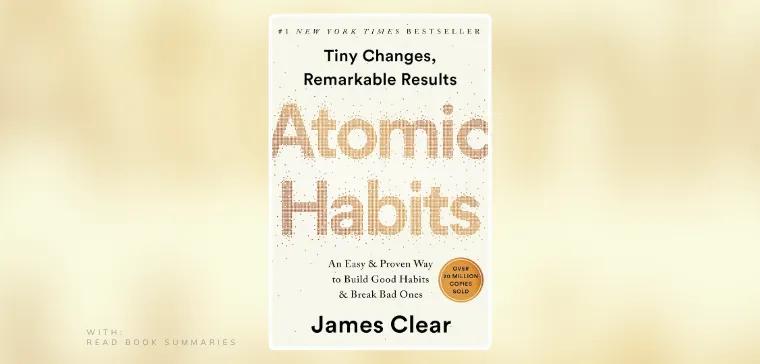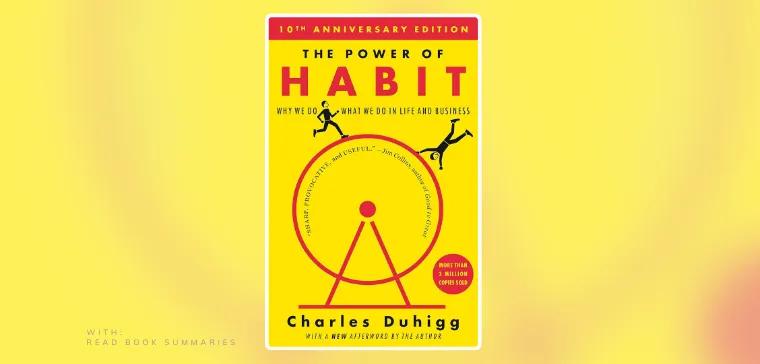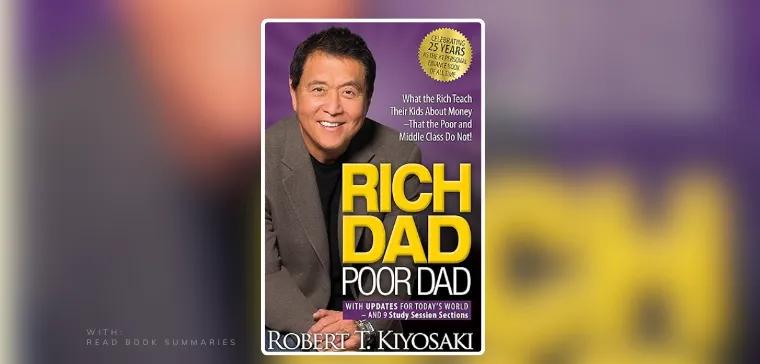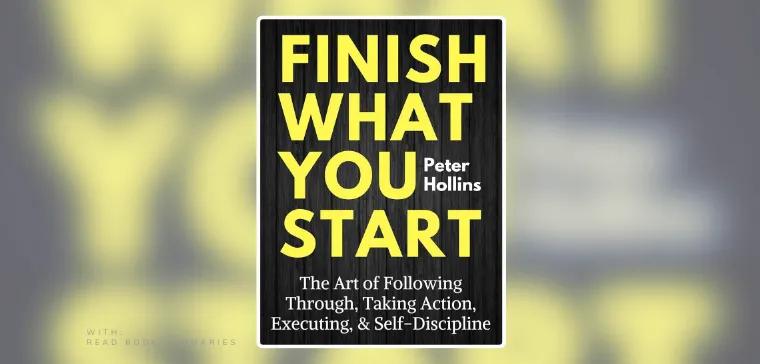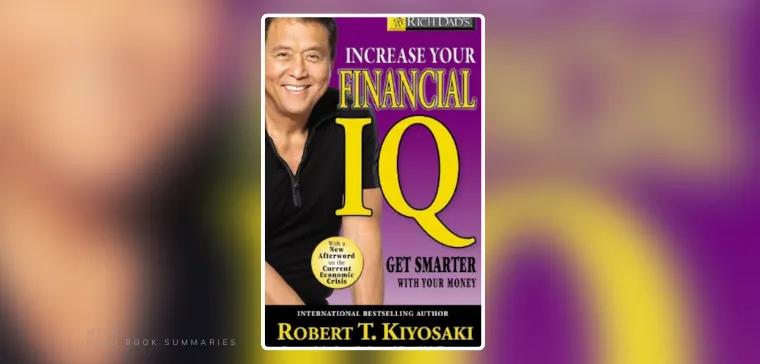

Increase Your Financial IQ: The Essential Guide by Robert T. Kiyosaki
Are you ready to transform your relationship with money and discover the secrets of the rich? In his book Increase Your Financial IQ, Robert T. Kiyosaki, bestselling author of Rich Dad Poor Dad, takes us into the fascinating world of financial intelligence. This essential guide, which has captivated millions of readers around the world, reveals how understanding finances can change your life.
"It's not money that makes you rich, but your financial intelligence."
By reading this article, you will discover practical strategies to improve your financial situation and avoid common pitfalls that lead to poverty. Kiyosaki shares personal anecdotes and valuable lessons that resonate with our times, where managing money is more crucial than ever.
Prepare to explore concepts that might transform your vision of wealth and prompt you to take action. Don't miss this opportunity to become financially smarter!
Chapter: Introduction: Does Money Make You Rich?

In the introduction of Increase Your Financial IQ, Robert T. Kiyosaki poses a fundamental question: "Does money make you rich?" The answer is a resounding no. Kiyosaki explains that money alone is not enough to guarantee wealth. He illustrates this point with examples of people who, despite having high incomes, end up getting further into debt. He also mentions lottery winners who, after receiving millions, quickly find themselves broke.
The author shares a personal anecdote about his investments in gold. In 1972, he began buying gold coins at $70 an ounce. When the price reached $800, he succumbed to greed and did not sell, hoping the price would rise further. Eventually, he sold at a loss when the price dropped. This experience taught him that it is not the gold itself that is valuable, but the information and knowledge surrounding it.
Kiyosaki emphasizes that true wealth comes from financial intelligence, which is the ability to turn information into useful knowledge. He compares this to a friend who is passionate about golf and spends a fortune on the latest equipment but refuses to take lessons. Similarly, many invest in assets without investing in their financial education, which limits their success.
In conclusion, Kiyosaki invites readers to develop their financial intelligence to navigate the complex world of money. He promises that the book will teach them to become more financially savvy, thus preparing them to face economic challenges with confidence. This engaging introduction encourages readers to continue reading to discover how to increase their financial IQ and achieve true economic independence.
Chapter: What is Financial Intelligence?

In the first chapter of Increase Your Financial IQ, Robert T. Kiyosaki explores the concept of financial intelligence, an essential skill for navigating the complex world of money. He begins by explaining that financial intelligence is the ability to solve financial problems, not just to accumulate money. Kiyosaki emphasizes that even people with a high level of academic intelligence can lack financial intelligence, which can prevent them from succeeding financially.
Understanding Financial Intelligence
Kiyosaki distinguishes between financial intelligence and financial IQ. Financial intelligence is the set of skills and knowledge used to solve financial problems, while financial IQ is the measure of that intelligence. For example, two people may earn $100,000 a year, but if one pays less tax through better tax management, they have a higher financial IQ. This shows that financial intelligence is not limited to earning money but also includes the protection and effective management of that money.
Illustrative Examples
To illustrate his points, Kiyosaki uses the example of his "poor dad," a very educated man with a low financial IQ, who succeeded in the academic world but struggled in the business world. In contrast, his "rich dad" did not have a university degree but possessed high financial intelligence, which allowed him to build great wealth. Kiyosaki explains that the difference lies in the ability to solve financial problems and make informed decisions.
In conclusion, Kiyosaki encourages readers to develop their financial intelligence to better manage their finances and achieve economic freedom. This chapter lays the foundation for understanding the importance of financial education and prepares the reader to explore the five financial IQs in the following chapters.
Chapter: The Five Financial IQs

In the chapter "The Five Financial IQs" from Increase Your Financial IQ, Robert T. Kiyosaki presents the five essential skills to improve one's financial intelligence and achieve wealth. These financial IQs are practical tools to navigate the complex world of money.
Financial IQ #1: Making More Money
The first financial IQ is about the ability to generate income. Kiyosaki explains that most people know how to earn money, but those who succeed in making more have a higher financial IQ. For example, a person who earns a million dollars a year has a higher financial IQ than someone who earns $30,000. The idea is to always look for ways to increase your income, whether through promotions, investments, or entrepreneurial activities.
Financial IQ #2: Protecting Your Money
The second financial IQ is protecting your income from financial predators, like taxes. Kiyosaki emphasizes that paying less tax legally is a sign of financial intelligence. For example, a person who pays 20% in taxes on their income has a higher financial IQ than someone who pays 35%. This involves understanding tax laws and using strategies to minimize deductions.
Financial IQ #3: Budgeting Your Money
The third financial IQ is effectively managing your budget. Kiyosaki stresses the importance of creating a budget surplus rather than living with a deficit. For example, a person who earns $30,000 a year and manages to save $5,000 has a higher financial IQ than someone who spends all they earn. The key is to plan expenses to always have a surplus to invest.
Financial IQ #4: Making Your Money Work for You
The fourth financial IQ involves using leverage to increase your income. Kiyosaki explains that investing your money in high-yield investments, like real estate or stocks, can generate significant profits. For example, achieving a 50% return on an investment is a sign of a high financial IQ.
Financial IQ #5: Improving Your Financial Information
Finally, the fifth financial IQ is the continuous improvement of your financial knowledge. Kiyosaki encourages readers to constantly educate themselves to make informed decisions. This may include reading books, attending seminars, or following economic news.
In conclusion, Kiyosaki urges readers to develop these five financial IQs to better manage their finances and achieve economic freedom. This chapter lays the groundwork for understanding the importance of financial education and prepares the reader to explore each IQ in detail in the following chapters.
Chapter: Financial IQ #1: Making More Money

In the chapter "Financial IQ #1: Making More Money" from Increase Your Financial IQ, Robert T. Kiyosaki explores strategies to increase one's income, a crucial element of financial intelligence. He begins by explaining that most people know how to make money, but few know how to make more money effectively. The idea is not just to work harder, but to work smarter.
Understanding How to Earn More
Kiyosaki emphasizes that to increase income, it is essential to understand the difference between working for money and making money work for you. For example, a person who invests in real estate and receives rent has passive income, which is a smart way to earn more without additional daily effort. He compares this to his personal experience where, after leaving the military, he chose to work at Xerox to develop his sales skills, rather than taking a higher-paid but less educational job.
Illustrative Examples
Kiyosaki uses the example of his own journey to illustrate the importance of financial education. He chose to work in sales to overcome his shyness and learn how to generate income proactively. This decision helped him become a successful entrepreneur. He explains that increasing his financial IQ was crucial for his success, as it allowed him to see opportunities where others only saw obstacles.
In conclusion, Kiyosaki encourages readers to invest in their financial education and to look for ways to make their money work for them. This chapter encourages thinking about strategies to increase income in a sustainable and intelligent way, thus preparing the reader to explore other financial IQs in the following chapters.
Chapter: Financial IQ #2: Protect Your Money

In the chapter "Financial IQ #2: Protect Your Money" from Increase Your Financial IQ, Robert T. Kiyosaki discusses the importance of safeguarding your income against financial threats, such as taxes, creditors, and unexpected expenses. He explains that protecting money is as crucial as generating it, because even great fortunes can be quickly depleted without careful management.
Understanding Financial Protection
Kiyosaki starts by emphasizing that protecting money involves a deep understanding of tax laws and strategies to legally minimize taxes. For example, he mentions using corporations to benefit from tax deductions and to protect personal assets. He compares this to an umbrella that shields from rain: without good protection, even the greatest wealth can be swept away by financial storms.
Illustrative Examples
To illustrate his points, Kiyosaki shares the story of an entrepreneur friend who lost a large part of his fortune due to poor tax management. This friend had not taken the time to understand the tax implications of his investments, which led to penalties and significant tax debts. In contrast, Kiyosaki explains how his "rich dad" used business structures to protect his assets and reduce his taxes, thereby demonstrating a high financial IQ.
In conclusion, Kiyosaki encourages readers to educate themselves about tax laws and consult experts to effectively protect their income. This chapter urges consideration of financial protection strategies, thus preparing the reader to explore other aspects of financial intelligence in the following chapters.
Chapter: Financial IQ #3: Budgeting Your Money

In the chapter "Financial IQ #3: Budgeting Your Money" from Increase Your Financial IQ, Robert T. Kiyosaki highlights the importance of effective budgeting to achieve financial stability. He explains that budgeting does not mean depriving oneself, but rather wisely allocating resources to maximize financial growth.
Understanding the Importance of Budgeting
Kiyosaki begins by emphasizing that most people view budgeting as a constraint, when in reality, it is a powerful tool for creating wealth. He compares budgeting to a flight plan for a pilot: without planning, it is easy to get lost. A good budget allows you to control expenses, save, and invest wisely. For example, he recommends always paying your investments and savings first, before addressing current expenses, a strategy he calls "paying yourself first."
Illustrative Examples
To illustrate his points, Kiyosaki shares the story of a family who, despite a modest income, manages to save and invest through strict budgeting. This family allocates part of their income to savings and investments before paying their bills, which allows them to gradually build wealth. In contrast, he describes how other families, with higher incomes, end up living paycheck to paycheck due to a lack of budget discipline.
In conclusion, Kiyosaki encourages readers to adopt a proactive approach to budgeting to achieve their financial goals. This chapter urges seeing budgeting not as a restriction, but as a means to unlock financial potential, thus preparing the reader to explore other aspects of financial intelligence in the following chapters.
Chapter: Financial IQ #4: Making the Most of Your Money

In the chapter "Financial IQ #4: Making the Most of Your Money" from Increase Your Financial IQ, Robert T. Kiyosaki explores how to use leverage to maximize financial gains. He explains that leverage is a powerful tool that allows one to multiply financial results without proportionally increasing effort or risk.
Understanding Leverage
Kiyosaki begins by defining leverage as the use of external resources to amplify results. This can include using other people's money, time, skills, or technologies to increase income. For example, investing in real estate with a mortgage is a form of leverage because it allows the acquisition of a high-value asset with a relatively small initial investment. Kiyosaki emphasizes that leverage can be a powerful ally for those who know how to use it wisely.
Illustrative Examples
To illustrate his points, Kiyosaki shares the story of a real estate investor who used leverage to buy several properties with little initial capital. By renting out these properties, the investor was able to generate positive cash flow while repaying the loans. On the other hand, Kiyosaki warns against the dangers of poorly used leverage, citing examples of people who have accumulated unsustainable debts by speculating on volatile markets without a solid strategy.
In conclusion, Kiyosaki encourages readers to educate themselves on the use of leverage to maximize their financial opportunities. This chapter prompts readers to think about strategies to use leverage responsibly, thus preparing them to explore other aspects of financial intelligence in the following chapters.
Chapter: Financial IQ #5: Improve Your Financial Information

In the chapter "Financial IQ #5: Improve Your Financial Information" from Increase Your Financial IQ, Robert T. Kiyosaki emphasizes the crucial importance of continuous financial education. He explains that to succeed financially, it is essential to stay informed and adapt to economic changes.
The Importance of Continuous Financial Education
Kiyosaki begins by highlighting that information is power. In the financial world, those who possess the right information and know how to use it have a significant advantage. He compares this to a navigator using up-to-date maps to avoid obstacles and reach their destination. Similarly, investors must constantly update their knowledge to navigate the complex financial markets. For example, understanding new tax laws or market trends can make the difference between a successful investment and a failure.
Illustrative Examples
To illustrate his points, Kiyosaki tells the story of an investor who missed a lucrative opportunity because he was unaware of recent changes in tax legislation. In contrast, another well-informed investor was able to adapt his strategy and profit from it. Kiyosaki insists that financial education never ends and that readers must commit to continuous learning, whether through reading books, attending seminars, or keeping up with economic news.
In conclusion, Kiyosaki encourages readers to invest in their financial education to remain competitive and succeed in a constantly evolving economic environment. This chapter urges readers to see continuous learning as an essential investment, thus preparing them to apply this knowledge to improve their financial situation.
Chapter: The Integrity of Money

In the chapter "The Integrity of Money" from Increase Your Financial IQ, Robert T. Kiyosaki explores the relationship between personal integrity and financial management. He asserts that integrity is a fundamental pillar for building sustainable wealth and that without it, even the best financial strategies can fail.
Integrity as the Foundation of Wealth
Kiyosaki begins by explaining that financial integrity means being honest with oneself and with others in all financial transactions. He compares this to building a house on solid foundations: without integrity, a person's financial structure is bound to collapse. For instance, he discusses situations where people have made questionable financial decisions, such as falsifying documents to obtain a loan, which ultimately led to disastrous consequences.
Illustrative Examples
To illustrate his points, Kiyosaki shares the story of an entrepreneur who lost the trust of his partners and clients due to dishonest business practices. In contrast, he describes how another entrepreneur, by staying true to his values and treating his partners with respect and honesty, succeeded in building a prosperous and respected business. Kiyosaki emphasizes that integrity attracts opportunities and positive relationships, which are essential for long-term success.
In conclusion, Kiyosaki encourages readers to cultivate integrity in all their financial affairs. This chapter prompts seeing integrity not only as a moral virtue but as a strategic asset for financial success, thereby preparing the reader to apply these principles in their own life to achieve true economic independence.
Chapter: Developing Your Financial Genius

In the chapter "Developing Your Financial Genius" of Increase Your Financial IQ, Robert T. Kiyosaki explores how everyone can cultivate their innate financial potential to achieve economic freedom. He insists that financial genius is not reserved for an elite but is accessible to all who commit to learning and applying sound financial principles.
Awakening the Financial Genius
Kiyosaki begins by explaining that financial genius is a combination of creativity and financial knowledge. He compares it to a muscle that strengthens with exercise and training. For example, he encourages readers to think outside the box and consider innovative solutions to financial problems, such as investing in unconventional assets or creating passive income streams. He emphasizes that continuous education and practical experience are essential for developing this genius.
Illustrative Examples
To illustrate his points, Kiyosaki shares the story of a young entrepreneur who turned a simple idea into a successful business by using creative financial strategies. This entrepreneur was able to identify a market opportunity and used his knowledge to raise funds and grow his business. On the other hand, Kiyosaki warns against staying in one's comfort zone, which can limit the development of financial genius.
In conclusion, Kiyosaki encourages readers to adopt a growth mindset and actively engage in financial learning. This chapter urges seeing the development of financial genius as a continuous journey, thus preparing the reader to apply these principles to transform their financial life and achieve true economic independence.
Chapter: Developing Your Financial IQ

In the chapter "Developing Your Financial IQ" from Increase Your Financial IQ, Robert T. Kiyosaki emphasizes the importance of continuously improving one's financial intelligence to achieve economic freedom. He explains that financial IQ is a skill that can be developed through learning and experience, and it is essential for navigating the complex world of finances.
The Importance of Financial Education
Kiyosaki begins by highlighting that financial education is the key to increasing one's financial IQ. He compares it to learning a new language: the more you practice, the more competent you become. He encourages readers to engage in continuous learning, whether through reading books, attending seminars, or listening to financial podcasts. For example, he mentions how keeping up with economic news can help understand market trends and make informed decisions.
Illustrative Examples
To illustrate his points, Kiyosaki shares the story of a woman who transformed her financial life by educating herself about real estate investment. Starting with small properties, she gradually gained skills and confidence, allowing her to make larger and more profitable investments. In contrast, he warns against remaining passive and not seeking to improve one's knowledge, as this can limit financial opportunities.
In conclusion, Kiyosaki encourages readers to see the development of their financial IQ as a continuous and enriching journey. This chapter urges adopting a growth mindset and actively engaging in financial learning, thus preparing the reader to apply these principles to transform their financial life and achieve true economic independence.
Chapter: Conclusion

In the conclusion of Increase Your Financial IQ, Robert T. Kiyosaki summarizes the key concepts discussed in the book and highlights the importance of financial intelligence for achieving economic freedom. He reminds readers that developing their financial IQ is an ongoing journey that requires commitment and perseverance.
The Importance of Action
Kiyosaki emphasizes that knowledge without action is useless. He encourages readers to apply the principles learned in the book to improve their financial situation. For example, he mentions the story of a reader who, after putting Kiyosaki's advice into practice, succeeded in getting out of debt and began investing in real estate. This reader transformed their life by taking concrete steps, thus illustrating the power of action.
A Call to Personal Responsibility
Kiyosaki concludes by stressing that everyone is responsible for their financial future. He compares this to a gardener who must constantly tend to their garden for it to thrive. Similarly, individuals must continually educate themselves and adapt their financial strategies to succeed. He encourages readers not to be discouraged by failures, but to see them as learning opportunities.
In conclusion, Kiyosaki leaves readers with a message of hope and motivation, urging them to take control of their financial education and continue their pursuit of economic freedom. This final chapter inspires viewing financial intelligence as a powerful tool to transform one's life and achieve financial goals.
Conclusion

In starting this article, we explored how financial intelligence, according to Robert T. Kiyosaki, is the key to transforming our relationship with money. Increase Your Financial IQ teaches us that wealth is not only about accumulating money but also about managing it wisely.
This book personally opened my eyes to the importance of continuous financial education and inspired me to review my own financial strategies. It reminds us that anyone can develop their financial IQ by actively engaging in learning and applying new skills.
"It is not money that makes you rich, but your financial intelligence."
To apply these teachings, start by evaluating your expenses and identifying investment opportunities that will allow your money to work for you. Ask yourself: how can I improve my current financial situation by using Kiyosaki's principles?
Take the time to read Increase Your Financial IQ and discover how you can transform your financial future. This book is an invitation to take control of your economic life and build sustainable wealth. Are you ready to take on the challenge?
